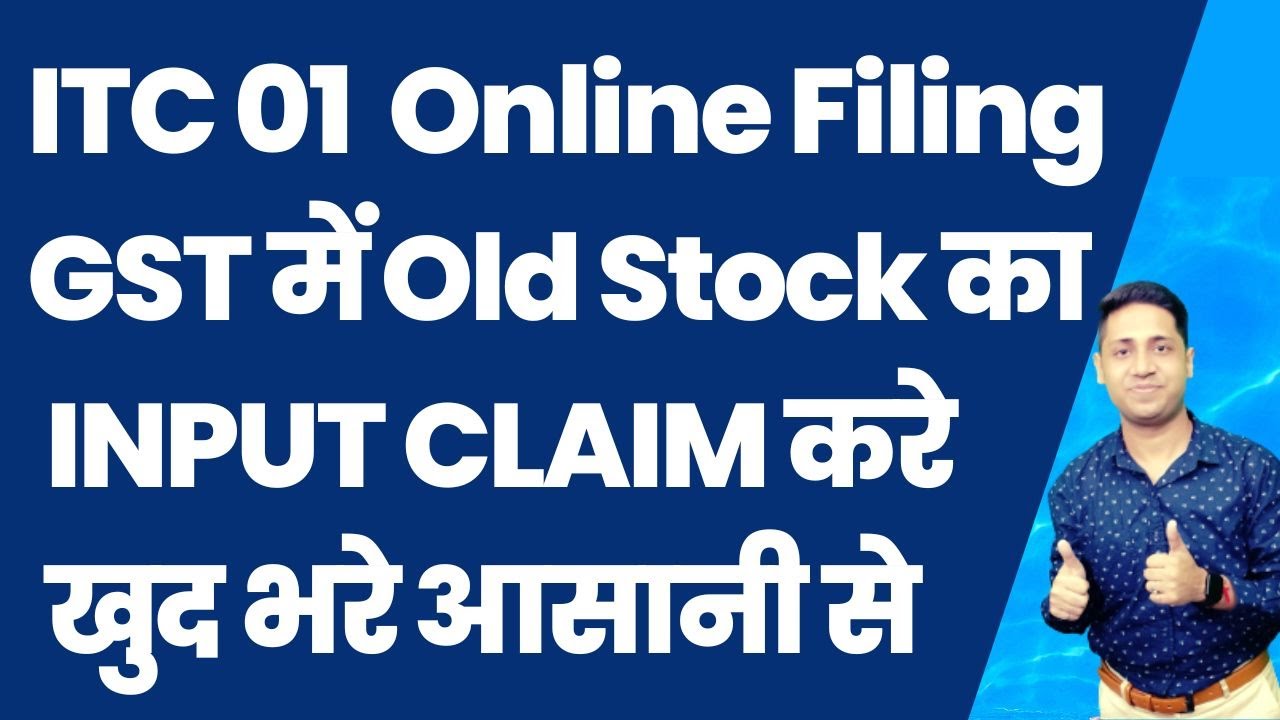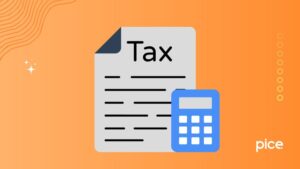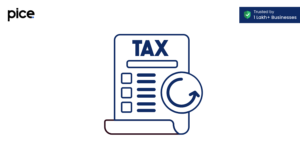How to Claim Input Tax Credit on Opening Stock?
- 26 Aug 24
- 9 mins

How to Claim Input Tax Credit on Opening Stock?
Key Takeaways
- Eligibility: Only registered businesses with valid invoices and stock intended for taxable supplies can claim ITC on opening stock.
- Claim Process: File Form GST TRAN-1 and report in GSTR-3B to claim ITC on opening stock.
- Eligible Taxes: Claim ITC on excise duty, VAT, service tax, and additional customs duties from the previous tax regime.
- Documentation: Maintain valid invoices and record ITC in the electronic credit ledger.
- Transition Benefits: Businesses now liable under GST but not previously registered can still claim ITC, ensuring smooth financial transition.
In the world of goods and services tax (GST), input tax credit (ITC) is a crucial component that helps businesses reduce their tax liability. ITC allows businesses to claim credit for the tax paid on inputs, including raw materials, services, and capital goods, used in the production of goods or services.
One significant aspect of ITC is its applicability on opening stock when transitioning from the previous tax regime to GST. This blog elaborates on ITC on opening stock and how businesses can make the most of this provision.
What is Input Tax Credit (ITC)?

ITC is a mechanism that enables businesses to reduce their tax liability by claiming credit for the GST paid on inputs. It ensures that the tax is levied only on the value addition at each stage of the supply chain, thereby avoiding the cascading effect of taxes.
Under GST, businesses can claim ITC for the tax paid on goods and services used in the course or furtherance of their business.
The framework of the GST input tax credit allows a 60% tax rate on goods which attract central tax at the rate of 9% or more.
Eligibility Criteria for ITC on Opening Stock:
- Registered as a Taxable Person:
- The business must be registered under GST as a taxable person. Unregistered businesses are not eligible to claim ITC on opening stock.
- Stock Held for Taxable Supplies:
- The opening stock should be intended for making taxable supplies. ITC cannot be claimed on stock used for exempt supplies or non-business purposes. This ensures that the credit is only available for goods that will contribute to the taxable turnover of the business.
- Possession of Valid Invoices or Documents:
- The business must have valid invoices or other tax-paying documents for the stock on which ITC is being claimed. These documents should be dated within twelve months preceding the date of GST implementation. Proper documentation is crucial to substantiate the claim for ITC.
- Entry in the Electronic Credit Ledger:
- The ITC on opening stock must be recorded in the electronic credit ledger of the business. This ledger is part of the GST portal and helps in maintaining a digital record of the credit available and utilized by the taxpayer.
- Credit of Inputs:
- The credit can be claimed on inputs (raw materials) that form part of the opening stock. The eligible ITC amount should be calculated based on the GST rate applicable to the inputs.
- Major Input Tax Credits:
- The business should ensure that all major input tax credits are included while calculating ITC on opening stock. This includes credits against VAT, excise duty, and other applicable taxes from the previous tax regime.
- Balance Credit:
- The business should reconcile the balance credit in the electronic credit ledger with the actual stock held. This ensures that there is no discrepancy between the physical stock and the credit claimed.
- Credit Against VAT and Excise Duty:
- Businesses transitioning from the previous tax regime can claim ITC on the opening stock that was subject to VAT and excise duty. The credit for VAT and excise duty must be properly documented and included in the ITC claim.
Steps to Claim ITC on Opening Stock:
Calculate the ITC on Opening Stock:
Businesses need to calculate the eligible ITC on opening stock based on the invoices or taxpaying documents available. The ITC amount should be proportionate to the GST rate applicable to the goods.
File Form GST TRAN-1:
To claim ITC on opening stock, businesses must file Form GST TRAN-1 within the stipulated time frame. This form captures the details of the opening stock and the corresponding ITC claim.
Enter Details in GSTR-3B:
After filing TRAN-1, businesses must report the ITC claim in their monthly return, GSTR-3B. The ITC on opening stock should be included in the total ITC claimed for the relevant tax period.
Eligible Duties and Taxes Held in Stock
When transitioning to the GST regime, businesses can claim Input Tax Credit (ITC) on the taxes paid under the previous tax regime for the opening stock. Here’s a brief overview of the eligible duties and taxes that can be claimed:
1. Central Excise Duty:
- Businesses can claim credit for the excise duty paid on inputs or goods held in stock. This applies to manufacturers who paid excise duty on the production of goods.
2. Value Added Tax (VAT):
- ITC can be claimed for VAT paid on goods held in stock. This is relevant for traders who purchased goods on which VAT was paid under the state VAT laws.
3. Service Tax:
- For businesses providing services, the service tax paid on input services can be claimed as ITC. This includes services that were used in the business operations.
4. Additional Duties of Customs (CVD and SAD):
- Credit for additional duties of customs, such as Countervailing Duty (CVD) and Special Additional Duty (SAD), paid on imported goods can also be claimed as ITC.
5. Other Taxes:
- Any other central or state taxes paid under the previous regime, which are subsumed under GST, can also be claimed as ITC on the opening stock.
Not Liable to be Registered Under Current Law
Businesses that were not required to be registered under the previous tax laws but are now liable to be registered under GST can still claim ITC on stock. They need to apply for registration and fulfill the necessary conditions to avail of this benefit.
Providing Works Contract Service or Availing Benefit of Exemption Notification for Services
Businesses providing works contract services or availing benefits under exemption notifications for services need to carefully assess their eligibility for ITC. Specific provisions in GST law govern the eligibility and the extent of credit that can be claimed.
Dealing in Exempted Goods or Services
Businesses dealing in exempted goods or services may have restrictions on claiming ITC. They need to understand the impact of exemptions under GST and the conditions under which they can claim credit for eligible duties or taxes.
Conditions to be Fulfilled to Take Credit of Eligible Duties or Taxes

- Possession of Invoice or Other Duty-Paying Document: The business must possess a valid document evidencing the payment of duty or tax on the stock.
- Goods or Services Should be Used or Intended to be Used for Business: The stock should be intended for use in the course of business.
- Eligible for ITC under GST: The goods should be eligible for ITC under the GST law.
- Furnishing of Declaration: The business must furnish a declaration, electronically or otherwise, specifying the details of stock held on the appointed day.
GST Input Tax Credit - For Central Excise
Conditions to Avail ITC:
- Carry Forward of CENVAT Credit: The closing balance of CENVAT credit can be carried forward as ITC under GST, provided it is eligible under GST law.
- Unavailed CENVAT Credit on Capital Goods: Credit on capital goods not carried forward can be availed under GST.
GST Input Tax Credit - For VAT
Conditions to Avail GST ITC:
- VAT Credit on Inputs: Businesses can carry forward the VAT credit on inputs as ITC under GST.
- Inputs Held in Stock: ITC can be claimed on inputs held in stock, subject to fulfilling the conditions specified under GST law.
Conclusion
The switch to GST includes provisions for claiming ITC on stock held, ensuring that businesses won't suffer financially as a result of the change. Key conditions include having proper documentation, intended business use of goods or services, and eligibility under GST law. Understanding these provisions and conditions is crucial for businesses to optimize their tax benefits during the transition.
💡If you want to pay your GST with Credit Card, then download Pice Business Payment App. Pice is the one stop app for paying all your business expenses.



















